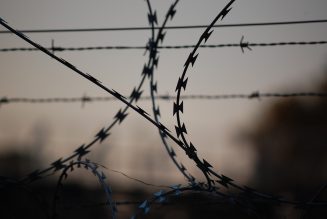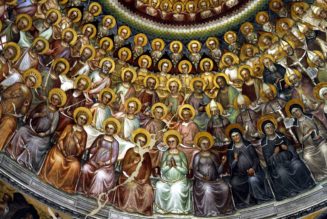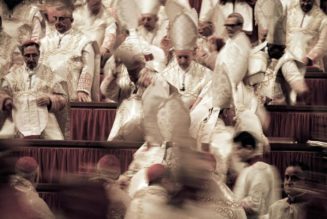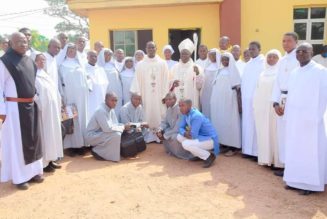By Fr. Jerry Pokorsky ( bio – articles – email ) | Jun 27, 2023
Our capacity for curiosity is a curious thing. God implanted in us a desire for an expanding spirit of inquiry with temporary satisfactions. St. Augustine recognizes these attributes: “You have made us for Yourself, O Lord and our hearts are restless until they rest in you.” Depending upon how we use it, curiosity is hellish or healthy.
Misdirected curiosity is hellish. St. Paul provides a moral term for inquiries that violate natural secrets: busybody (cf. 2 Thess. 2:11). We all have natural secrets, from the details of our infirmities to secret repented sins. Even secular institutions recognize the propriety of many secrets. Gossip rooted in unjust curiosity is a violation of the Eighth Commandment. Busybodies impose themselves where no man should explore.
Properly directed curiosity is healthy. Holy curiosity discovers cures for polio, builds skyscrapers, designs cathedrals, exposes spy networks, and uncovers naughty behavior. Seeking answers to the universe of puzzles—and puzzling evil behavior—is virtuous. The opposite of healthy curiosity is sloth: laziness. Parents who don’t correct their children in justice are lazy. An uncorrected naughty child soon becomes a spoiled brat. Failures of inquiry rooted in sloth impede authentic cultural progress.
Sometimes our curiosity is hopelessly frustrating. With the Psalmist, we lament, “For I envied the arrogant when I saw the prosperity of the wicked. They have no struggles; their bodies are healthy and strong. They are free from common human burdens; they are not plagued by human ills.” (Ps. 73:3-5) Why is it that so many people get away with—literally—murder? What motivates them?
Gehenna is a valley outside of Jerusalem and is the scene of monstrous Old Testament practices. For some time, the Jews decided to offer their young children to Moloch. They tossed the children into the horrible fiery pit, hoping the satisfy the wrath of the demon:
They have built the high places of Topheth in the Valley of Ben Hinnom to burn their sons and daughters in the fire—something I did not command, nor did it enter my mind. So beware, the days are coming, declares the Lord, when people will no longer call it Topheth or the Valley of Ben Hinnom, but the Valley of Slaughter, for they will bury the dead in Topheth until there is no more room. (Jer. 7:31-32)
How was it possible for a Godly nation to become a nation of baby killers? As we think of it, the mystery deepens. Our curiosity about motives, social patterns, leaders, and educated scholars of Jewish teaching hits an inexplicable brick wall. We will never understand the demons that motivate murder and self-destruction.
Consider the Herod father-and son-team. Herod the Great built the Temple in Jerusalem. In Caesarea, he constructed a deep-water port, an engineering marvel. Herod the Younger continued the Herodian dynasty and maintained good relations with the Romans, preventing the usual massacres of the Roman conquest. Both were inexplicably brutal. Herod the Great massacred the Innocents because an anonymous newborn King intimidated him. His son—with the allure of lust that exceeded his attraction to John’s righteousness—beheaded the Baptist and placed the grotesque trophy on a platter for all to see. What motivated these monsters? What convinced great men to respond with such brutality to these illusory threats?
It’s wearisome to note that our cultural quarrels are increasingly bitter and dishonest. The lies and corruption are self-evident: the abuse of power, the bribery, the unjust application of the laws, and the greed of the elites—the apostasy of our religious leaders. Our curiosity about the motives for bizarre behavior mostly has unsatisfying ends.
Occasionally, our curiosity helps us to connect the dots. In recent weeks, on Jeopardy, not one of the three contestants recognized the “Our Father”—the Lord’s Prayer. The senior generation is partly—may be mostly—responsible. Have we patiently suffered within our families because we practiced the faith? Do we—including priests and prelates—know the Ten Commandments and evaluate our thoughts, words, and deeds by them? Do we challenge our children with Christian requirements? The evils “in the world” always begin in our hearts.
The Sacrament of Penance is a curious institution, often neglected. As we enter the Confessional, the priest prays: “May God who has enlightened every heart help us to know our sins and trust in His mercy.” We need God’s grace for a healthy examination of conscience followed by a confession of sins. Where else can we enter a private room, anonymously confess our sins, and receive God’s forgiveness? Indeed, the secular culture is more curious about Confession than are most Catholics. Ask any priest.
There will come a time when most—but not all—curiosities will be satisfied: “Nothing is covered that will not be revealed, or hidden that will not be known. What I tell you in the dark, utter in the light; and what you hear whispered, proclaim upon the housetops. And do not fear those who kill the body but cannot kill the soul; rather fear him who can destroy both soul and body in hell.” (Mt. 10:26-28) Hell forever incinerates our capacity for curiosity.
The Last Judgment will come when Christ returns in glory. Only the Father knows the day and the hour; only he determines the moment of its coming. Then through his Son Jesus Christ, he will pronounce the final word on all history. We shall know the ultimate meaning of the whole work of creation and of the entire economy of salvation and understand the marvelous ways by which his Providence led everything toward its final end. the Last Judgment will reveal that God’s justice triumphs over all the injustices committed by his creatures and that God’s love is stronger than death. (CCC 1040)
As we enter heaven and see God face-to-face, God purifies but does not destroy our curious nature. His infinite and glorious mysteries will forever satisfy our heavenly curiosities with eternal delights.
Sound Off! CatholicCulture.org supporters weigh in.
All comments are moderated. To lighten our editing burden, only current donors are allowed to Sound Off. If you are a current donor, log in to see the comment form; otherwise please support our work, and Sound Off!

There are no comments yet for this item.




![“The first thing you can always do is thank God” [must-watch video]…](https://salvationprosperity.net/wp-content/uploads/2022/01/the-first-thing-you-can-always-do-is-thank-god-must-watch-video-327x219.jpg)


![During Holy Week, rapper Lil Nas X releases line of Satan-themed shoes (containing drop of human blood) to promote gay music video to kids [NYTimes paywall] …](https://salvationprosperity.net/wp-content/uploads/2021/04/during-holy-week-rapper-lil-nas-x-releases-line-of-satan-themed-shoes-containing-drop-of-human-blood-to-promote-gay-music-video-to-kids-nytimes-paywall-327x219.jpg)


